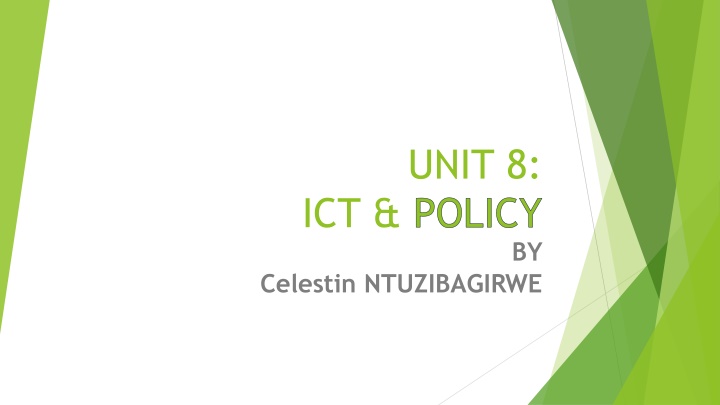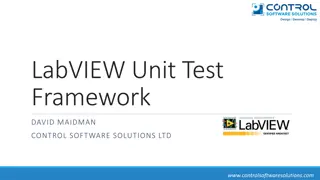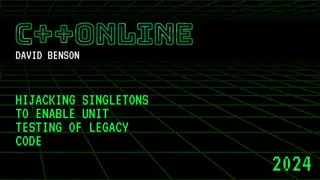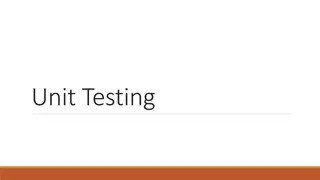
National Policies Supporting ICT in Education for Quality Learning
Explore the national policies driving ICT integration in education for quality learning outcomes in Rwanda. Vision 2020, EDPRS 2, Smart Rwanda Master Plan, and Education Sector Strategic Plan are key initiatives shaping educational transformation through technology adoption, skill development, and enhanced service delivery.
Download Presentation

Please find below an Image/Link to download the presentation.
The content on the website is provided AS IS for your information and personal use only. It may not be sold, licensed, or shared on other websites without obtaining consent from the author. If you encounter any issues during the download, it is possible that the publisher has removed the file from their server.
You are allowed to download the files provided on this website for personal or commercial use, subject to the condition that they are used lawfully. All files are the property of their respective owners.
The content on the website is provided AS IS for your information and personal use only. It may not be sold, licensed, or shared on other websites without obtaining consent from the author.
E N D
Presentation Transcript
UNIT 8: ICT & POLICY BY Celestin NTUZIBAGIRWE
National policies related to ICT in Education. We have the following number of national policies that support and guide the use of ICT in teaching and learning for education quality. So the national policies that support the use of ICT in teaching and learning for quality education are the following: Vision 2020 Vision 2020 is Rwanda s long-term development plan that seeks to fundamentally transform Rwanda into a middle-income country by 2020. It sets out ambitious plans to create an internationally competitive dynamic economy supported by a productive, skilled workforce.. To achieve the goals, the Rwandan people must be proved opportunities to develop knowledge, skills and attitudes to compete the labor market and contribute to the social and political life of their country. 1.
continued National policies related to ICT in Education 2. EDPRS 2 It stipulates that ICT solutions will be used to improve service delivery and also that ICT is considered as an important aspect in developing the knowledge based economy .The Education Sector Strategic Plan (ESSP) outlines how the education sector will strive to achieve this mission over the next 5 years. The EDPRS2 will put an emphasis on building ICT professional skills and leverage ICT in Education to accelerate skills development .when ICT is used in many tasks, there is no other means that teaching will not be use ICT , for learners, ICT will be easy for them in their daily life to be used.
continued National policies related to ICT in Education 3. SMART Rwanda Master Plan The objective of the plan is to utilize ICT for Education as a tool to enhance teaching and learning. So the Smart Rwanda Master Plan derives from the SMART Africa commitment in 2013 and it is a five years plan which describes the priorities of applying ICTs in different sectors SMART Rwanda stands for Service- Oriented Modem Accountable and Real Time Rwanda to accelerate the socio- economic growth. Providing and expending access to variety of educational programs and diverse educational access through mobile and other channels is one of the priorities of the master plan at national level.
continued National policies related to ICT in Education 4. Education Sector Strategic Plan Education Sector Strategic Plan has been developed in line with EDPRS2 to achieve the national aspirations for economic transformation, improved productivity, rural development, accountable governance, and youth employment .The Education Sector Strategic Plan is a plan that outlines how the education sector will strive to achieve its mission over a period of five years. ESSP three goals and priorities in education sector are the following: a. Improving quality education and training b. Expanding access to education at all levels -Strengthening the relevance of education and training to meet labor market demand.
continued National policies related to ICT in Education 5. Smart ICT in Education Master Plan The ministry of education will focus on providing each school at primary and secondary level with a number of smart classrooms that enable shared learning environments. So those Smart classrooms are very important in teaching and learning by using technological tools such as computers, specialized educational software, digital content assistive technologies, audio-visual equipment and networking equipment.
continued National policies related to ICT in Education 6. Waste Management Policy so as the modern society increasingly relies on electrical and electronic equipment ,it is very important to reduce the impact on the environment as much as possible from the entire life-cycle
Integration of ICT in teaching and learning to enhance classroom practices. It has been proved that learners are more motivated when engaged in learning process when concepts and skills are underpinned with technology pedagogy because world is digitally evolving and ICT has an impact on most every aspect of our daily life whether working or socializing, learning or playing. As technology is being part of our lives, learners should also have and understand relevant experience to support them to successfully engage with technology and prepare them for life after school. using ICT learning will contribute to the development of 21stcentury skills such as communication skills, critical thinking skills, creativity skills etc..
continued National policies related to ICT in Education The develops of 21stcentury skills in learners such as critical thinking, collaboration skills, creative and communication skills, so the useof because these technologies in learning, they are very engaged in interpretation, reasoning ,and discussion
continued ICT tools and services in learning to enhance teaching. 1. Internet So using this technology brings brand new ways to teach and learn digitally, to navigate educational resources and share content with peers. 2. Mobile devices These are one of the portable ICT devices such as laptops m tablets mobile phones. These are important traditionally models of teaching and learning used by the teachers. 3. Computers with accessories A PC (personal computer) are not easily movable from class to class and require an uninterruptible electrical power supply for computers to work. SO PC has different accessories such as mouse, keyboard, printer, external speakers.
The key issues and challenges in implementing ICT in teaching and learning: Need of appropriate classroom setup 1. Lack of administration support 2. Lack of technical support 3. Need of enough infrastructure (devices (adequate software and hardware), internet connectivity, stable electricity). 4. Need of teachers with understanding for the new pedagogy and the importance of ICT in education. 5. Need of subject related digital content. 6. Need of appropriate skills of both teachers and students (ICT skills and confidence). 7.
. END!!!!!!!


















